The greatest trap in our life is not success, popularity or power, but self-rejection – Henri Nouwen
Introduction: 9 Thinking Traps Holding You Back
Defining our own identities and hastily drawing conclusions can erect psychological obstacles, constraining the realization of our authentic capabilities. As entrepreneurs and professionals, breaking free from cognitive distortions is crucial for success. Welcome to Wikilifestyles.com, where we delve into the 9 Thinking Traps Holding You Back and provide insights on overcoming limiting beliefs. Let’s explore how understanding these mental traps can pave the way for a mindset that not only survives but thrives in the professional world.
Overgeneralization:
In the dynamic landscape of professionals, a single misstep can lead to overgeneralization. For instance, imagine a project manager who encounters unexpected challenges in a new assignment
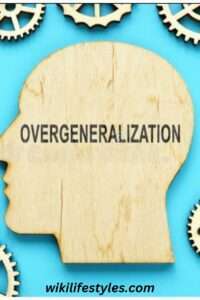
. Instead of recognizing it as a learning opportunity, they may think, “I’m always a failure at managing projects.” This overgeneralization ignores the numerous successful projects they’ve led and unfairly paints their entire career negatively.
Labelling or Labeling:

Professionals often fall prey to labeling after encountering setbacks. Consider a sales executive who receives a rejection from a potential client. Instead of attributing it to various factors, they may label themselves as a “terrible salesperson.” This limiting belief can overshadow their previous successful deals and hinder future opportunities.
Mental Filtering:

Wearing blinkers in the professional realm can obstruct progress. Imagine a marketing professional receiving overwhelmingly positive feedback on a campaign but fixating on a single negative comment. By filtering out the praise, they undermine the overall success of their efforts, hindering their ability to appreciate and replicate what worked well.
All-or-Nothing Thinking:
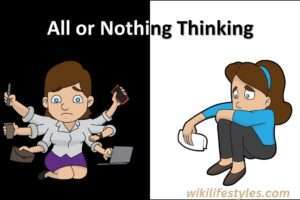
Entrepreneurs often face setbacks in their endeavors. Picture an aspiring business owner who doesn’t secure funding for their startup. Instead of adjusting their approach and seeking alternative funding sources, they might think, “My life is over, I’ll never succeed in business.” This all-or-nothing thinking blinds them to the myriad possibilities and potential avenues for success.
Jumping to Conclusions or Mind Reading:
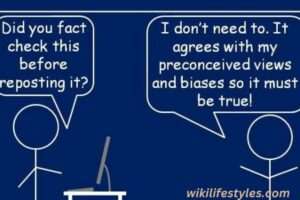
Effective communication is paramount for professionals. Consider a team leader who notices a colleague’s distant behavior. Rather than seeking clarification, they may jump to the conclusion that the colleague is upset with them. This mind reading can lead to unnecessary tension, highlighting the importance of open communication over assumptions.
Emotional Reasoning:

In the high-stakes world of professionals, emotions often run deep. Imagine a software developer feeling anxious about an upcoming project deadline. If they let this anxiety dictate their thoughts, they might convince themselves, “I’m definitely going to fail; there’s no point in even trying.” This emotional reasoning undermines their competence and may result in suboptimal performance.
Personalization and Blame:
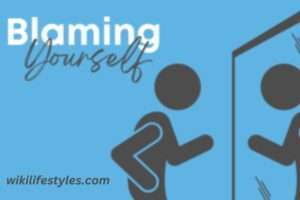
Taking responsibility is commendable, but it’s essential to differentiate between accountability and undue blame. Picture a team leader whose project faces unexpected challenges. If they internalize the blame entirely, thinking, “It’s all my fault; I should’ve planned better,” they overlook external factors and hinder their ability to collaborate and problem-solve effectively.
Should Statements:
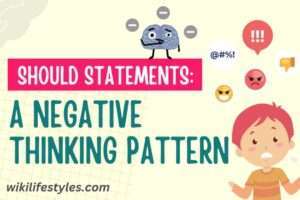
In the ever-evolving professional landscape, flexibility is key. Consider an entrepreneur setting rigid rules for their work-life balance, thinking, “I should always be productive.” When unexpected challenges arise, this mindset leads to frustration and disappointment. Embracing flexible “coulds” and “wills” allows for adaptability and joy in the face of unpredictability.
Catastrophizing:
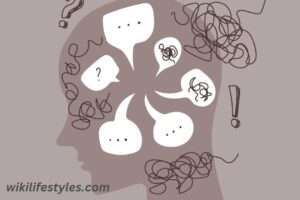
Entrepreneurs often play out worst-case scenarios in their minds. Picture a project manager missing a deadline and immediately envisioning losing their job, financial ruin, and personal catastrophe. This catastrophizing mindset fosters unnecessary anxiety. Instead, taking a deep breath, focusing on problem-solving, and maintaining perspective can lead to more constructive outcomes.
Conclusion:9 Thinking Traps Holding You Back
As we conclude our exploration of the 9 Thinking Traps Holding You Back, remember that a resilient mindset is a powerful asset in the professional world. At Wikilifestyles.com, we strive to empower individuals to break through mental barriers, fostering a positive and growth-oriented mindset. Let these insights guide you on your journey to success in your career and personal development.
FAQ :9 Thinking Traps Holding You Back
Q1: What are cognitive distortions, and how do they impact professionals?
Cognitive distortions are patterns of irrational thinking that can hinder decision-making and problem-solving in the professional realm. By recognizing and addressing these distortions, professionals can enhance their mental resilience and improve their overall performance.
Q2: How can entrepreneurs overcome limiting beliefs?
Entrepreneurs can overcome limiting beliefs by challenging negative self-talk, setting realistic goals, and seeking support from mentors or peers. It’s essential to foster a growth mindset and embrace failure as a learning opportunity.
Q3: What are some effective positive thinking strategies for professionals?
Positive thinking strategies for professionals include practicing gratitude, visualization, and affirmations. By focusing on the positive aspects of their work and accomplishments, professionals can cultivate a more optimistic outlook.
Q4: How can one break mental barriers in their career?
Breaking mental barriers involves self-reflection, challenging limiting beliefs, and seeking professional development opportunities. Setting achievable goals and celebrating small successes can contribute to overcoming mental roadblocks.
Q5: How do cognitive distortions impact professional relationships?
Cognitive distortions can strain professional relationships by fostering misunderstandings and unnecessary conflicts. For instance, if someone engages in overgeneralization or mind reading, it can lead to misinterpretations of colleagues’ intentions, potentially harming teamwork and collaboration.
Q6: Can breaking mental barriers positively affect career advancement?
Absolutely. Breaking mental barriers allows professionals to embrace challenges, learn from setbacks, and adapt to changing circumstances. This resilience not only enhances job performance but also positions individuals for career growth and advancement.
Q7: What role do positive thinking strategies play in entrepreneurship?
Positive thinking strategies are integral for entrepreneurs as they navigate uncertainties. By maintaining an optimistic outlook, entrepreneurs can creatively problem-solve, inspire their teams, and attract opportunities that align with their vision.
Q8: How can professionals identify and overcome limiting beliefs?
Professionals can identify limiting beliefs by paying attention to self-talk and recognizing patterns of negative thinking. Overcoming these beliefs involves challenging their validity, seeking support from mentors, and focusing on personal and professional development.
Q9: Are there practical exercises to enhance mental resilience in the workplace?
Certainly. Professionals can engage in mindfulness practices, goal-setting, and reflection exercises to enhance mental resilience. These practices foster emotional intelligence and help individuals navigate workplace challenges with greater ease.
Q10: How can an entrepreneur balance high expectations without falling into thinking traps?
Balancing high expectations involves setting realistic goals and acknowledging that setbacks are part of the entrepreneurial journey. Entrepreneurs can maintain a positive mindset by learning from failures and viewing challenges as stepping stones toward success.
Q11: Can overcoming thinking traps contribute to a healthier work-life balance?
Absolutely. Overcoming thinking traps allows individuals to approach work and life with a more balanced perspective. By letting go of rigid “shoulds” and embracing flexibility, professionals can reduce stress and foster a healthier work-life balance.
Q12: What role does continuous learning play in breaking through mental barriers?
Continuous learning is a powerful tool for breaking through mental barriers. It exposes professionals to new perspectives, helps challenge limiting beliefs, and fosters a growth mindset, essential for adapting to the ever-changing demands of the professional world.
Q13: How can professionals support each other in overcoming thinking traps?
Supporting one another involves fostering open communication and creating a workplace culture that encourages vulnerability. By sharing experiences and strategies for overcoming thinking traps, professionals can collectively contribute to a more positive and resilient work environment.
Q14: Are there any recommended books or resources for further understanding cognitive distortions?
Yes, there are several insightful books and resources. Some recommendations include “Feeling Good” by David D. Burns, “The CBT Handbook” by Pamela Myles and Roz Shafran, and “Mindset” by Carol S. Dweck. These resources provide practical insights into understanding and overcoming cognitive distortions.
